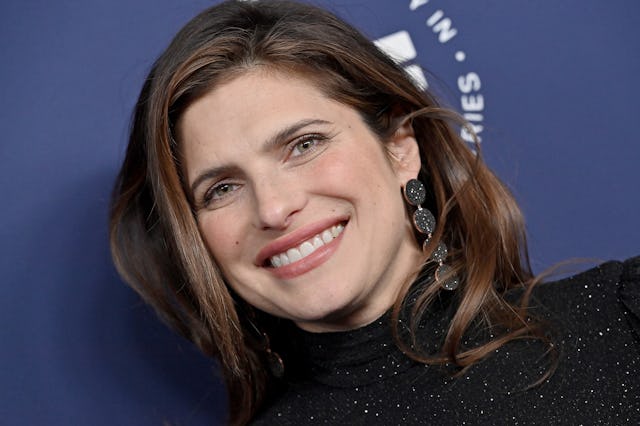Lake Bell Says She’s "Straight Up Just A Better Parent" On Weed
The actor says she can get on a kid’s level when she has some THC in her system.

Being a good mom and enjoying cannabis are not mutually exclusive, and for some, like Lake Bell, a little bit of bud actually makes the wild ride of motherhood even more enjoyable.
The actor and filmmaker, known for her voice work on comedies like Robot Chicken and BoJack Horseman, along with her role as Chloe in The Secret Life of Pets 2, opened up about how responsible cannabis use has made her “straight up a better parent” to her daughter, Nova, 8, and son Ozgood, 5 1/2, whom she shares with ex-husband Scott Campbell.
"I am straight up a better parent when I'm just two Canns in. I'm like on their level," Bell explained during a panel at the Cann x Jane “Cann-Do Holiday” premiere party, which she directed a three-minute short film for.
"I'm just like, 'That is a f***ing crazy dinosaur!' Like, 'Let's get on the ground right now and be f***ing crazy dinosaurs, let's open some presents. F*** it.' I become literally a kid,” she explained, via People.
Any mom who also enjoys a toke or a sip of a cannabis-infused beverage can verify this claim.
While promoting Cann products, Bell said that she “can’t get through the holidays without” a little green. The cannabis-infused can drinks, called “Cann Social Tonic,” boast 2mg of THC and 4mg of CBD, which is considered a microdose by edible standards.
Bell previously opened up about how she is a RIE parent, a form of respect-oriented parenting, in an interview with Chicago North Shore Moms — which feels on point for a mom who happens to enjoy a glass of cannabis over a glass of wine.
“It’s a way to give your child the space to discover the world safely but independently. It’s the opposite of helicopter parenting. You give them safe environments and allow them to explore in those environments without intervening all the time,” she explained.
“ You [also] narrate what you’re doing to give them the benefit and respect of letting them know what you’re doing. Even if they don’t understand the words they know the routine by the sounds and tone. It empowers them.”